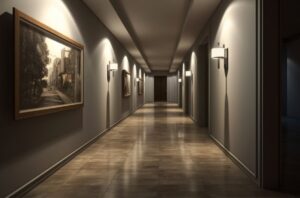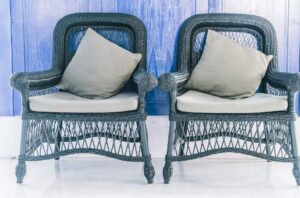Custom Access Doors: Tailor Your Space—Create Something Unique!
Custom access doors are an essential element in modern interior design, offering both form and function. These doors give you access to hidden areas like utility spaces, electrical panels, and plumbing systems while seamlessly blending into a space’s overall design.
For interior designers, custom access doors present an opportunity to create unique, tailored solutions that enhance a room’s look and utility.
What Are Custom Access Doors?
Custom access doors are specially designed panels that provide entry to concealed areas within a building.
Unlike standard access doors, which come in fixed sizes and designs, custom access doors are made to fit specific dimensions and design requirements. This level of customization allows for better integration with the surrounding decor and improved functionality.
What Are Your Options?
There are several types of access doors, each suited to different project needs, whether residential, commercial, or industrial:
General-Purpose Access Doors: These are versatile and can be used in various settings, from residential to commercial buildings.
Fire-Rated Access Doors: Designed to withstand high temperatures, these doors are crucial for preventing the spread of smoke and flames in case of a fire.
Drywall Access Doors: Specifically made for drywall installations, these doors ensure a clean and seamless finish.
Specialized Access Doors: This category includes floor, ceiling, and roof access doors, each designed for specific access needs.
What Are Access Doors Made of?
The choice of material for custom access doors depends on the intended use and environment. Here are some of the most common materials used to manufacture access doors and panels:
Aluminum: Known for being lightweight and corrosion-resistant, aluminum is ideal for areas where weight and durability are concerns.
Steel: Offers superior strength and is suitable for heavy-duty applications.
Stainless Steel: Perfect for high-visibility or corrosive environments due to its sleek appearance and resistance to rust.
Plastic: Commonly used in residential settings, plastic access doors are valued for their clean finish and resistance to corrosion.
Where Are They Used?
Custom access doors can be used in a wide range of settings, such as:
Commercial Building
Offices, retail spaces, and industrial facilities benefit from the tailored solutions that custom access doors provide.
Residences
Homes, apartments, and condominiums can use custom access doors to enhance both functionality and aesthetics.
Specialized Environments
Laboratories, clean rooms, and high-security areas require custom solutions to meet their unique needs.
How Are They Used?
Custom access doors are used in different settings, including:
Commercial Buildings: They are often found in storefronts, restaurants, and warehouses, providing access to essential systems while maintaining a space’s aesthetic.
Educational Institutions: Schools, colleges, and dormitories use access doors to conceal utility areas and ensure occupant safety.
Healthcare Facilities: Hospitals and clinics require access doors to maintain critical systems without disrupting or contaminating the sterile environment.
Residential Spaces: In homes, access doors are used for attics, crawl spaces, and utility areas, offering a neat solution—literally and figuratively—to hide unsightly systems.
Why Should You Consider Custom Access Doors?
Custom access doors offer several advantages:
Aesthetic Integration: They can be designed to match the surrounding decor, ensuring they do not break the visual flow of a space.
Enhanced Functionality: Customization allows for doors to be tailored to specific needs, improving their usability.
Increased Security: Custom features can include enhanced locking mechanisms for enhanced security measures.
Compliance with Regulations: Custom doors can be designed to comply with building codes and standards, ensuring safety and minimizing risks.
How Do You Choose Custom Access Doors?
When installing custom access doors, consider the following:
Site Preparation: Accurate measurements and site readiness are crucial for a successful installation.
Material and Design: Choosing the right materials and design ensures the door will meet the functional and aesthetic needs of the space.
Professional Installation: Hiring skilled professionals can ensure the door is installed correctly and safely.
Safety and Compliance: Ensuring the installation adheres to safety standards and regulations is essential for functionality and legal compliance.
How Much Do They Cost?
Several factors can affect the cost of custom access doors:
Material Costs: The choice of material can significantly impact the overall cost.
Customization Level: More complex designs and custom features, such as additional locks and latches, will increase the price.
Installation Costs: The budget should also include labor and additional expenses.
Maintenance and Longevity: Considering the long-term costs of maintenance and the durability of the materials can help in budgeting effectively.
How Do You Take Care of Them?
Proper maintenance ensures the longevity and functionality of custom access doors. Here are a few tips for ensuring your access doors and panels last a long time:
Tip #1: Regular Inspections
Routine checks for wear and tear can prevent major issues from happening. Inspecting access doors and panels regularly lets you spot and address problems and issues that could give you major headaches.
Tip #2: Cleaning and Lubrication
Keeping moving parts clean and lubricated ensures smooth operation. Doing this minimizes equipment malfunction, making your access door last longer.
Tip #3: Security Checks
Regularly checking locks and security features ensures they are functioning properly.
Tip #4: Professional Maintenance
Scheduled professional maintenance can address any issues that arise and keep the doors in optimal condition.
Wrapping It Up
Custom access doors are a valuable addition to any interior design project, offering practical and aesthetic benefits. By considering the specific needs of a space and choosing the right materials and design, interior designers can create unique, functional solutions that enhance the overall look and utility of a room. Whether in commercial, residential, or specialized settings, custom access doors provide a tailored approach to accessing hidden areas, making them an essential element in modern design.
If you gained new insights from this article, explore our blog, Gimkit, for more enlightening content.
Share this content:














Post Comment